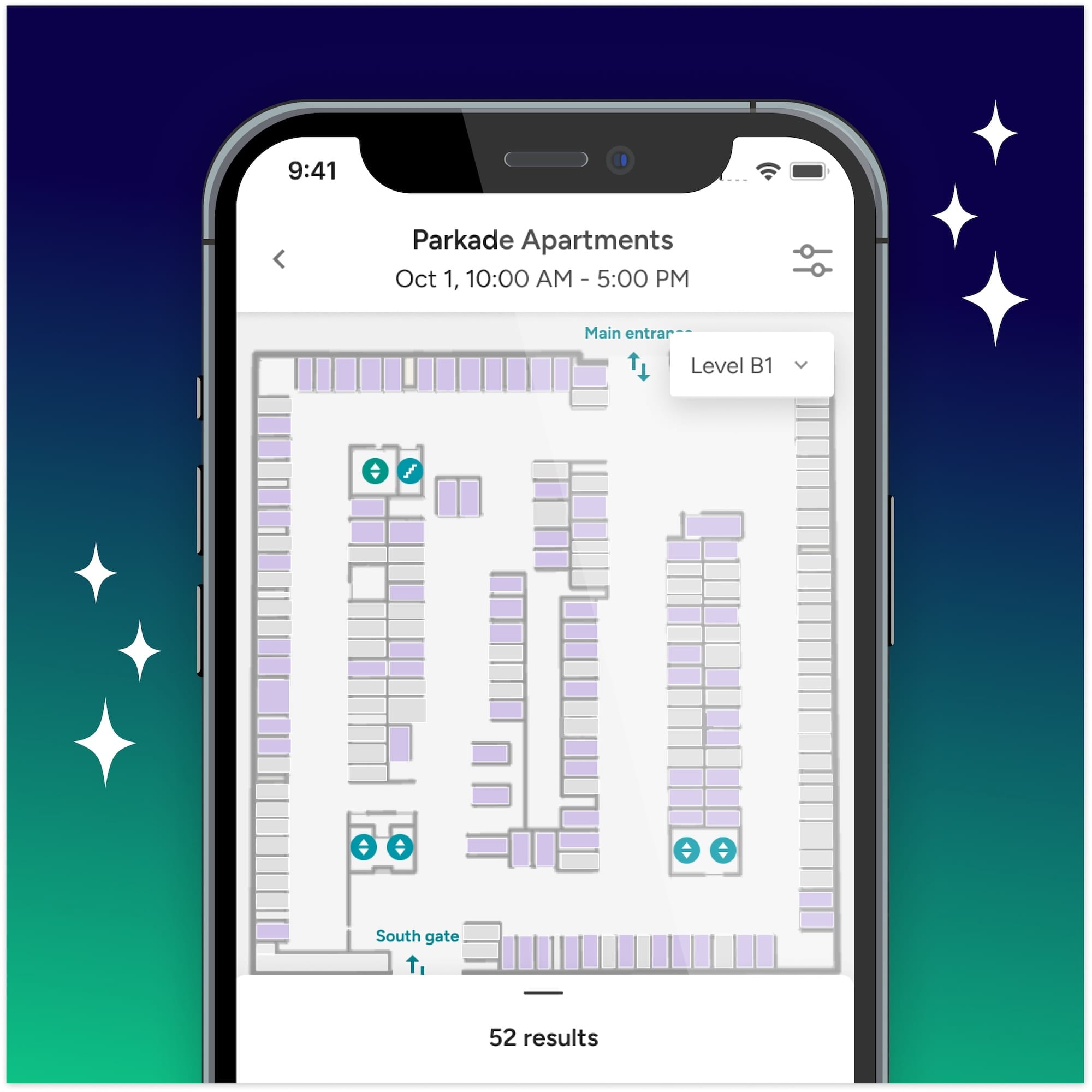

TABLE OF CONTENTS
Drive through almost any multi-family development in a popular urban area today, and you'll likely notice the same scene: drivers circling for spots, vehicles crammed into every available space, and frustrated residents forced to leave home and find parking elsewhere.
As urban areas grow and car ownership holds steady, parking at multi-family communities is becoming a growing challenge.
For decades, cities required developers to provide a set number of parking spaces per housing unit — known as parking minimums. However, many cities are now moving in the opposite direction, imposing parking maximums that limit the number of spaces developers can include in new buildings.
This shift reflects a broader trend toward sustainability and walkability, with many cities like Portland and San Francisco leading the way in reducing parking requirements. These policies aim to reduce car dependency, encourage the use of public transportation, and create an overall “greener” world.
For developers, these changes are often a welcome relief, because parking is expensive. On average, every space in a parking structure costs $20,000-$40,000 to build. By reducing the number of required spaces, developers can increase profitability without sacrificing valuable square footage.
The negative impact is being felt by communities, though. As the number of parking spots per unit drops, parking shortages are becoming especially common at multi-family properties. This squeeze only gets tighter when you consider the increase in co-living in the United States.
In 2022, the United States hit a record low in housing supply, and we’ve yet to recover. Due to the highest mortgage rates in two decades, more people are opting to rent than ever before. Pair with that a higher cost of living in cities, and the reason behind a major increase in co-living at multi-family communities becomes clear.
Because of this rise, there are more cars per household than the associated spaces were originally built to support. Developers often base parking ratios on assumed occupancy, so more co-living situations means that space is increasingly limited.
All of these factors have put a strain on parking.
Even as rent growth slows, many residents continue to rely on roommates to afford housing. The result is often overcrowded parking lots, with spaces poorly allocated to match the increased number of vehicles per household.
While there have been many recent advancements in proptech, giving property managers and owners more tools than ever to modernize their operations, parking is one area that has been slow to evolve.
When it comes to assigned parking, most buildings’ parking systems are highly manual, relying on spreadsheets or even laminated papers to keep track of who’s parking where. This not only takes up a lot of staff time, but also results in poor utilization of already-cramped parking and complicated (or impossible) guest parking.
With these outdated strategies, vacant reserved spaces may go unused while other residents struggle to find parking. Without an accurate system of record, it’s impossible to know at any moment which spots are available, so teams are unable to utilize spaces efficiently.
Given the complexities of assigned parking, teams often opt to let parking go unassigned. This strategy, however, has its own set of problems.
Because spots are available to everyone 24/7, there are no limitations on how long a resident can leave their car parked. Even if there are rules, it’s often infeasible for a staff member to walk the lot in order to enforce these rules. As a result, unassigned parking can often lead to a parking shortage in urban areas, leaving residents frustrated and without a guarantee of finding a spot when they arrive home.
Additionally, in dense urban areas, this “free for all” approach often involves a much higher incidence of unauthorized parking, especially if there’s no parking gate.
Policies to reduce parking minimums align with efforts to cut emissions and promote eco-friendly transportation options like biking and public transit. In some areas, parking spaces are even being converted into green spaces. In particular, the rise in electric vehicle (EV) ownership further complicates the parking at multi-family communities.
By 2030, EV sales are projected to reach $45 million, growing to 65 million by 2035.
A survey by the NMHC revealed that 83% of EV owners prefer to charge at home, but many multi-family dwellings lack adequate charging infrastructure. Properties need to meet this demand by installing charging stations, which often means reconfiguring existing parking spaces and removing non-EV spots.
Additionally, on top of the growing competition among EV owners to get access to a charger, you also run the risk of non-EV drivers taking empty EV spots if there’s an overall parking shortage. All of this has left many property managers and owners scrambling to try to balance EV demand with an already strained parking situation.
It’s possible for parking to still run smoothly despite the changes that are underway, but only if there are proper strategies and systems in place to manage it.
The good thing is that when you implement the right parking management system, the impact from all of the other key paint points will “magically” become less relevant.
An effective parking management solution should deliver on all of the following capabilities to help overcome many of the timely issues we mentioned above:
Curious to see if parking management software is a fit for your community? Reach out today to learn more.
.jpg)
As parking management becomes increasingly digital, security becomes critical — and we’re excited to share that we've achieved a major security milestone.
Read Story
We’re thrilled to announce one of our most significant leaps forward this year: the launch of dynamic maps across our mobile and web applications.
Read Story
Now that AB 1317 is official, it’s time to brush up on the requirements and see how your properties stand to benefit.
Read Story